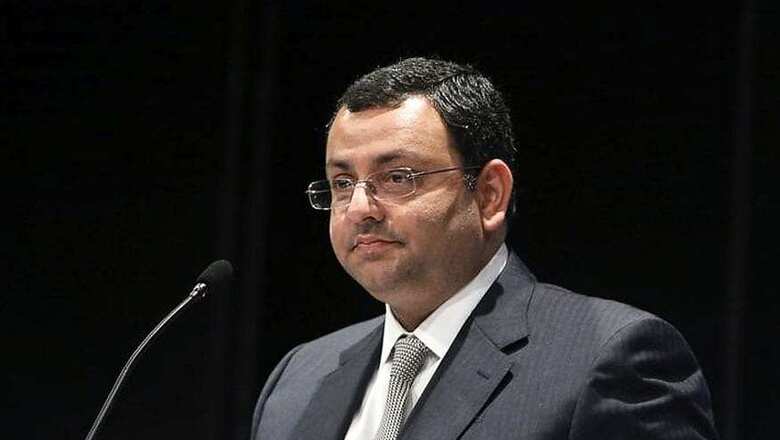
views
New Delhi: The Cyrus Mistry camp on Wednesday urged the National Company Law Appellate Tribunal (NCLAT) to amend the section 121 of the Article of Association (AoA) of Tata Sons, which gives trust nominees on its board powers of 'affirmative vote'.
Senior advocate CA Sundaram appearing on behalf of the Cyrus Mistry camp submitted before the NCLAT that through section 121 of AoA of Tata Sons, nominee directors have full power of the board to conclude any decision. According to him, this undermines the role and authority of the board and needs an intervention.
Section 121 of the AoA of Tata Sons mandates that important matter of Tata Sons can only be decided with the affirmative vote of trust nominee directors. Sundaram was appearing on behalf of Cyrus Mistry and two investment firms.
The Tata side was represented by senior advocate Abhishek Manu Singhvi and others during the hearing. A two-member bench headed by NCLAT Chairman Justice SJ Mukhopadhaya would continue its hearing on Thursday too.
The Mistry camp had challenged the July 9 order of the Mumbai bench of the NCLT which dismissed the pleas against his removal as Tata Sons chairman, as also the allegations of rampant misconduct on part of Ratan Tata and the company's board.
A special bench of the tribunal had held that the board of directors at Tata Sons was "competent" to remove the executive chairperson of the company. The NCLT bench had also said that Mistry was ousted as chairman because the Tata Sons' Board and its majority shareholders had "lost confidence in him".
Under the Companies Act 2013, an order of NCLT can be challenged before the National Company Law Appellate Tribunal (NCLAT). Mistry, who was the sixth chairman of Tata Sons, was ousted from the position in October 2016. He had taken over as the chairman in 2012 after Ratan Tata announced his retirement.
Two months after his removal, Mistry's family-run firms Cyrus Investments Pvt Ltd and Sterling Investments Corp approached the NCLT as minority shareholders, against Tata Sons, Ratan Tata, and some other board members.
Mistry in his pleas primarily argued that his removal was not in accordance with the Companies Act and that there was rampant mismanagement of affairs across Tata Sons. He also alleged that Tata Trust chairperson Ratan Tata and trustee N Soonawala interfered with the day-to-day operations of the group companies, they acted as shadow directors, and all of the above caused massive revenue loss for the group.



















Comments
0 comment